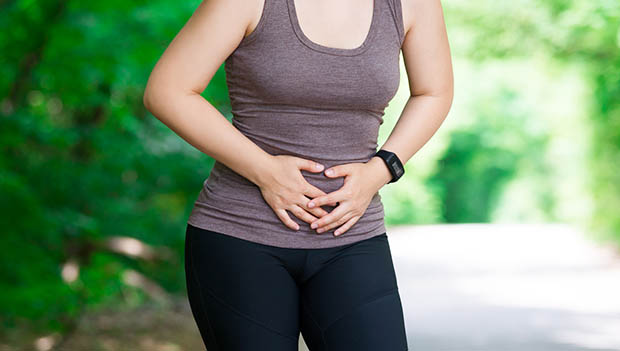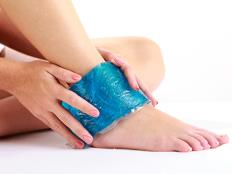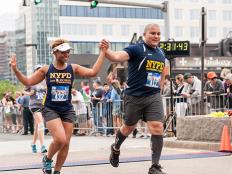
As a runner, food is the most important weapon in your arsenal. It fuels your workout, restores muscle, lends energy and combats fatigue. The secret to running strong is choosing your nutrition options wisely. Consuming certain foods and fluids at the right time will power your runs while keeping discomfort at bay.
Whether it's tummy troubles, sheer exhaustion or uncomfortable cramps, you can eat smart to cure what ails. Try these edible Rx's to feel better in a flash.
More: The Best Performance-Boosting Foods for Runners
Sore Muscles
Food Fix: All runners experience occasional muscle soreness. The trick to preventing achy arms and legs? Make your post-run meal a top priority. Nancy Clark, dietitian and author of Nancy Clark's Sports Nutrition Guidebook, recommends eating both protein and carbs within one hour following a long run or difficult workout. "Eat cereal with milk, yogurt or a fruit smoothie for a good protein-carb combination," she says.Throughout the day, look for foods containing high levels of antioxidants, which have been proven to reduce inflammation. Heather Mangieri, a certified sports dietitian, recommends cherries, blueberries, figs, eggplant and sweet potatoes.
More: Recovery Foods That Ease Muscle Soreness
Stomach Cramps
Food Fix: A sharp stomach pain can put a halt to your run. "Running jostles the gut, and intense runs can result in abdominal pains since blood is drawn away from the stomach to working muscles," says Deb Ognar, a sports dietitian at Northwestern University. The most common cause of cramping is overeating too close to your workout.Ognar recommends eating two to four hours before your run, choosing low-fiber foods and staying hydrated throughout the day. Her top pre-run nutrition picks include cereal, crackers, applesauce and melon.
More: 6 Nutrition Tips to Avoid Stomach Pain
Runner's Trots
Food Fix: Mid-run bathroom emergencies are embarrassing, but they're probably more common than you think. One UK study found that 68 percent of women marathoners had experienced diarrhea during or immediately after running. To stop loose stool and gas, avoid high-fiber foods and fatty meal items. Ognar also suggests staying away from sweeteners such as sorbitol, found in sugar-free gums and candies.Instead, choose easy-to-digest foods like pasta, bagels or rice. Keep a food diary to help determine what works and what doesn't for your system. If you suspect an underlying GI issue, see a gastroenterologist.
More: How to Soothe Runner's Trots
Fatigue
Food Fix: Feeling extremely tired is common for runners, especially during periods of increased mileage. As calories are a form of energy, one of the most basic ways to decrease fatigue is to be sure you're eating enough. Avoiding calories while training can lead to tiredness, decreased immunity and injury.Due to menstrual blood loss, women are also more susceptible to anemia, which leads to fatigue. "Include iron-rich foods in your diet, such as raisins, cereals and meat," says Dubost.
Charlie Horse
Food Fix: If you experience a mid-run leg cramp, the culprit is almost certainly low sodium. The day before a long workout, crunch on salty snacks such as pickles, soup, crackers or pretzels, recommends Mangieri.Also be sure to take an electrolyte drink with you to replenish sodium lost through sweat during runs or races longer than an hour. Low sodium can also cause heart palpitations, nausea and headaches—all telltale signs of a serious depletion.
READ THIS NEXT: Best Ways to Refuel After a Hard Run
Get ACTIVE on the Go


Couch to 5K®
The best way to get new runners off the couch and across the finish line of their first 5K.
Available for iOS | Android






Discuss This Article